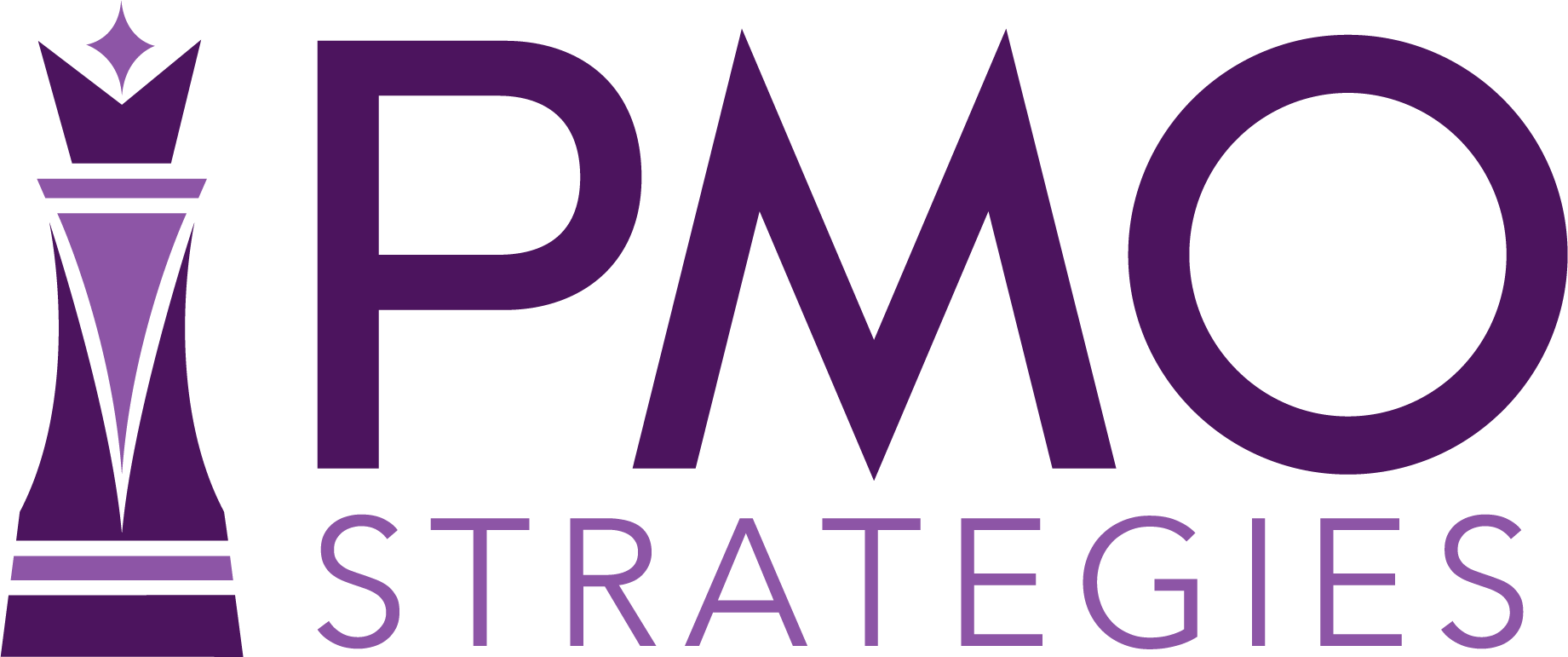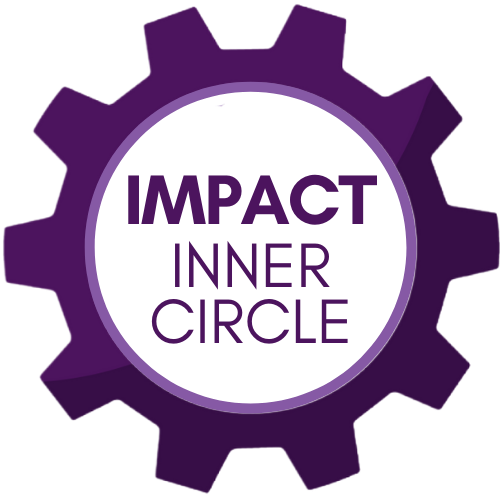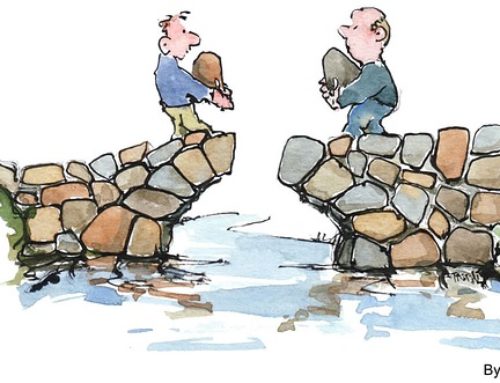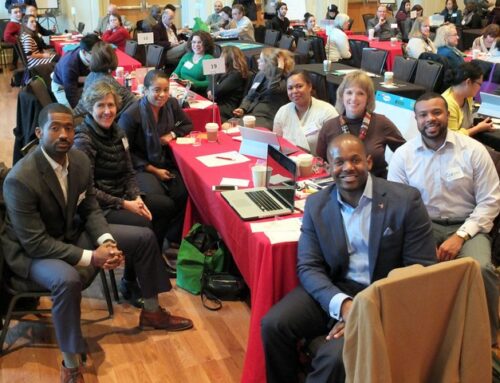For too long now, we’ve been calling ourselves project managers, prescribing to the belief system that our project success is defined by how well we manage the triple constraint. We and the success of our projects are often determined by measuring whether we meet the scope, within the prescribed budget, and on time.
Well guess what? We’ve been missing a HUGE piece of the puzzle.
By calling ourselves by the title of Project Manager, we might be subconsciously minimizing the IMPACT we are making to the organization or, even worse, shortchanging how we are seen by others in the organization.
“But wait, isn’t project management supposed to be my title? I fought long and hard for that title and my associated certification(s)!”
I hear ya! Just hang in with me here!
First, let’s talk about what many people think when they hear Project Management: Tools, Process, Methodology, Systems, Templates, etc. Sound about right to you?
Yes, those are important value added (if done right – see here for more on that) services and resources that you bring to the table as a PM. Do you know what’s missing from that? Any talk about the IMPACT you are creating.
We need to broaden our thinking about the role we play and start spending more time thinking about, planning for, and ensuring that the IMPACT we create via the project work we do is paramount. In fact, I feel so strongly that this shift in our thinking is crucial that I suggest project managers adopt the title of Investment Manager instead of Project Manager.
Why? It’s simple! Follow along here:
- Your project will take time, money, resources, and energy to get accomplished.
- Someone had to make a business case (hopefully!!) that this time, money, resources, and energy was worth getting spent to get to the outcome they are expecting to achieve.
- Someone (sponsor, business unit, C-suite, etc.) will have to agree that this work will lead to those outcomes and write a check (allocate resources, etc.) for that work to happen.
- OK, then that project gets turned over to you. You are now the project manager. They ALSO put the responsibility in your hands of ensuring that the investment is money well spent.
- You, the manager of that investment then has to guard that investment and ensure that the return on investment (ROI) is achieved.
Sounds to me like you are the manager of that investment and have a fiduciary responsibility to the organization to achieve the expected return.
If you achieve the triple constraint goals beautifully, but ROI isn’t achieved, do you think the investor will be happy? Would you be happy if this project was invested with dollars from your pocket? Nah, probably not. You may have had “fun” along the way, but as the investment manager, you failed to deliver the return expected for that investment, therefore you fell short of the true goals of the project.
Now, I’m sure you are wondering, “Do I really need to stop calling myself a Project Manager?” Of course, not. What I’m getting at here is that you need to think bigger about how important your role and the function you play really is (can be) to your organization. The bigger goals you set for yourself (or conversely, by not letting yourself get stuck in the status quo), the more you will accomplish. The more we truly understand and appreciate this, the more we can transform the mindset of ourselves and others to the real value of project management.
If you like this, join us in the IMPACT Inner Circle membership program!
The role of project management in organizations varies by how well everyone understands the value and IMPACT project management is or can be making. Your job (today and to protect the jobs of the future) is to ensure that you and everyone else understand just how valuable the role of project manager really is to the success of the firm.
Want to dig deeper on this topic?
Here are some ways to learn more about this Quick Tip:
- PMI Talent Management Conference (FREE for PMI Members): From Project Manager to IMPACT Driver: Preparing for the Future of Project Management
- Free Article and Ebook: From Project Manager to IMPACT Driver
- Quick-hit Project Tune-Up Course: From Project Manager to IMPACT Driver: Accelerating Your Project Management Career
Thanks for taking the time to read this article.
Click here to receive these blog posts right to your inbox.
Fill out our one-minute survey if you have topics you would like read more about.
I welcome your feedback and insights. Please leave a comment below.
See you online!
Warmly,










the project manager nevers owns theoutsome, the deliverable so simply never owns the investment. stop building people into something they can only aspire to be and let them earn their experience
I agree with you, Andrew!!!
Unfortunately, it seems as Ms. Laura Barnard, PMP has become so addicted to PMI’s Kool Aid that she is unable to demonstrate the ability to apply critical thinking skills to assess what a “project manager’s” role and responsibilities really are, not what PMI and APM would LIKE them to be.
This is the problem that PMI’s “success” has created for us: http://dilbert.com/strip/2011-11-22
BR,
Dr. PDG, Jakarta, Indonesia
Ha ha! This has NOTHING to do with PMI. This comes directly from people who do this work for a living, including my REAL WORLD experience building and running PMOs since 1999 and creating high-IMPACT and transformational change in organizations since 1994. I am also sharing the perspective that every single business leader and C-suite executive I’ve worked with for more than two decades. EVERY SINGLE one of them will tell you that project success is not based on EVM performance, but if the project outcomes were achieved as expected. Was ROI achieved? That is how projects are determined as successful, therefore how PMs are ultimately being measured.
We absolutely own our thoughts and mindset.
Paul, please help me understand where having a focus on project ROI is a bad thing for PMs…
Hey, Andrew. I’m not saying that the PM is the only one responsible for thinking this way or for ensuring ROI. What I am saying is that this is absolutely how projects are being measured and PMs are being viewed as successful if the projects are achieving that ROI. If we blindly focus solely on the triple constraint and define our success by that limited view, we are missing out on the bigger picture.
It’s not about control. It’s about mindset. You, as a PM, absolutely have the ability to ensure that the scope covers the necessary building blocks to ensure that project outcomes are realized. You also have the ability to map project scope and deliverables to the business case. You can raise questions, seek to understand, and gain clarity if the business case does not clearly state what the intended return on investment will be. You certainly can track progress on deliverables and if certain scoping decisions mean that an intended benefit or return will not be realized, it’s your fiduciary responsibility to the company to say something.
This isn’t about ownership as much as it is taking responsibility for understanding and seeing the big picture. It’s about communication, mindset, and taking responsibility for what we can control.
Your article’s tone is belittling the notion of a project manager as if it’s a bad thing to think of oneself as a project manger. A person who thinks of themselves as a project manager and does his or her job right will always be doing what you are proposing and more. But I understand where you are coming from. You may have spent more time with those PMs who are not living up to the spirit of a PM. Not all organizations have those types of PMs. I would recommend that you associate with higher caliber PMs and then you won’t see a need to write such articles.
I’m so sorry you feel that way, Angela. I’m not at all saying that the notion of a project manager is a bad thing. In fact, the point I’m making is that we aren’t done when we have managed the triple constraint…project managers are MORE than that. That’s what the article explains.
As far as who I associate with, my goal is to help raise the profile of project management and support PMs of all types, with all levels of experience. It is incumbent upon us, as leaders in this space, to share and help build that next generation of PMs, as well as show them a way to truly appreciate their value to an organization.
With over fifteen years of boots on the ground, senior level project management experience this speaks to me. Yes we are project or program managers, AND we are more than that. It is time that we embrace our full value and how we impact the bottom lines of our organizations. I have been thinking for some time now that we have fiduciary responsibility and this was a great way of articulating that.
I’m so glad to hear it, Gregory! Yes, we are MORE than the managers of projects. We are the leaders of change, the strategy navigator, the fiduciary or investment manager, and so much more.
[…] Quick Tip: Stop Calling Yourself a Project Manager […]
Dr Paul D Giammalvo: A suggestion: How about attacking the idea instead of the person?
Thanks, Larry! We don’t all have to agree, but I like to at least keep it professional. However, I think Dr. Paul would be at least a little bit moved by the direction Sunil is taking PMI. We talk about it at the PMO IMPACT Summit, which you are more than welcome to check out for free here: https://pmoimpactsummit.com/. However Paul has sworn it off, while many are saying it’s the best line up of quality content they’ve ever seen in one place. 🙂